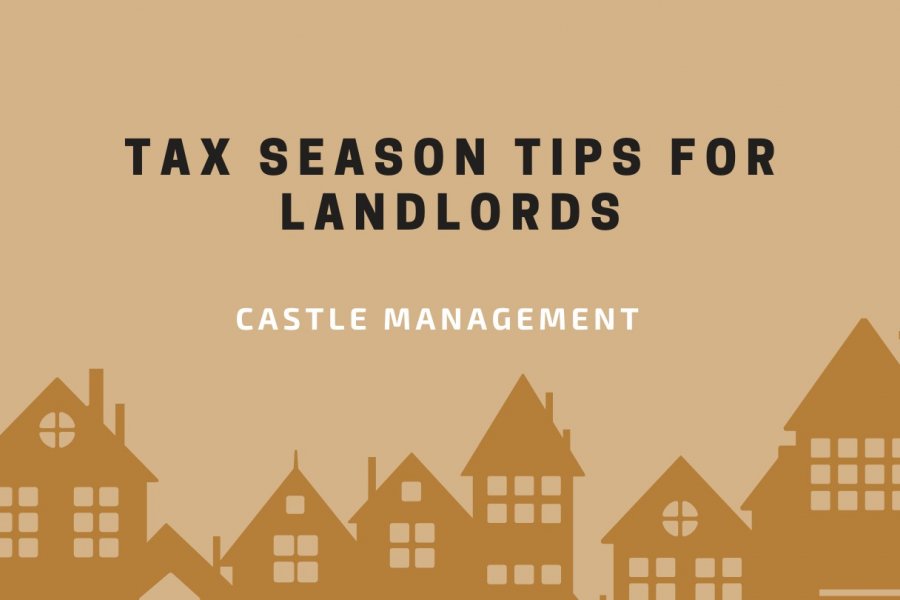
- Maximize Tax Deductions: Landlords can reduce taxable income by properly categorizing repairs vs. improvements, claiming depreciation, and deducting mortgage interest, property taxes, and professional service fees.
- Keep Detailed Records: Accurate documentation of rental income, expenses, repairs, and security deposits is crucial for maximizing deductions and avoiding IRS issues.
- Partner with Experts: Working with a tax professional or property management company like Castle Management can simplify tax filing.
At Castle Management, we know that for multifamily property owners, tax season can be one of the most important times of the year. With multiple units, varying lease terms, operating expenses, and changing occupancy rates, managing your taxes properly isn't just about staying compliant, it's also a strategic opportunity to protect your bottom line and maximize your deductions.
The good news? Landlords have a unique range of deductions and tax-saving strategies available. The bad news? If you’re not well-organized or fully aware of what you can claim, it’s easy to leave money on the table or, worse, make a costly mistake.
Whether you’re a first-time landlord or a seasoned investor, below are some practical tips to help you sail through tax season with confidence!
Learn How We Can Help You Maximize Your Home’s Potential!
1. Know the Difference Between Repairs and Improvements
One of the biggest sources of confusion during tax season is knowing which property expenses are immediately deductible and which must be capitalized and depreciated over time. Repairs are generally deductible in the year they’re incurred. These include things like fixing a broken window, unclogging a drain, or patching a roof leak.
Improvements/renovations, however, must be depreciated over the lifespan of the asset. Installing a new HVAC system or upgrading all the kitchen appliances in your units would typically be considered improvements. While depreciation still provides a tax benefit, it’s spread out over several years, which changes how it impacts your annual tax bill.
For multifamily properties, where the maintenance needs can be higher and more frequent, properly categorizing these expenses is crucial for your tax strategy.

2. Depreciate Your Multifamily Property Wisely
Depreciation is one of the most powerful tax tools available to landlords, especially for those who own multifamily properties. The IRS allows you to depreciate the value of your residential rental buildings (not the land) over 27.5 years. That means you can deduct a portion of your property’s value every year, even if the market value of your property is rising.
This non-cash expense can significantly lower your taxable income. Make sure you’re working with a qualified tax professional who understands how to correctly calculate and apply depreciation, especially if you’ve made improvements, added units, or restructured parts of your property over time.
Learn More About Castle Management!
3. Keep Detailed and Accurate Records
Multifamily property ownership typically involves a higher volume of transactions than single-family properties. You may have multiple tenants paying rent, utilities, and security deposits, plus you’re likely paying for regular maintenance, property management services, landscaping, insurance, and mortgage interest.
To maximize your deductions and protect yourself in case of an IRS audit, it’s essential to maintain detailed records. These include:
- Receipts for all expenses related to your property.
- Lease agreements and rent rolls.
- Records of income received from each unit.
- Proof of payment for contractors or employees.
- Documentation of repairs and improvements.
Investing in accounting software or working with a bookkeeping professional can help simplify this process, especially when managing multiple tenants and maintenance schedules.

4. Deduct Mortgage Interest and Property Taxes
If you have a mortgage on your multifamily rental property, the interest you pay is usually fully deductible. This can be a major write-off, especially in the early years of your loan when interest makes up a large portion of your payment.
You can also deduct property taxes, which often make up a significant part of your annual expenses.
5. Track Travel and Utility Expenses
If you drive to your rental property for inspections, maintenance, or tenant meetings, you may be eligible to deduct those mileage expenses. The IRS provides a standard mileage rate for business travel, which you can apply to your property visits. Just make sure you keep a mileage log, noting the date, the purpose of the trip, and the miles driven.
For landlords who cover some or all of the utilities for their tenants, those utility costs are also tax-deductible. With multifamily buildings, it’s common for landlords to pay for water, trash, or common area electricity, so be sure to track those bills and include them when preparing your tax return.
Why Partner with Castle Management?
6. Don’t Overlook Professional Services
If you hire a property manager to oversee operations and manage other tasks, the professional fees are fully deductible. As a multifamily property owner, delegating these tasks to professionals not only saves you time. Plus, it ensures your property is being managed with expertise.
Legal and accounting fees, software subscriptions, payroll services, and even business consulting related to your rental business all fall under deductible professional services.

7. Report Security Deposits Correctly
Security deposits are not taxable when received if you plan to return them to the resident at the end of the lease. However, if part or all of the deposit is withheld to cover damage or unpaid rent, that amount must be reported as income. At the same time, you can usually deduct the repair costs associated with the damages as an expense.
This area can be tricky, especially for multifamily property owners dealing with turnover in multiple units. Proper documentation and consistent policies will help keep your books in order.
8. Consider Home Office Deductions
If you manage your rental business from home and have a dedicated office space used solely for your rental activities, you could qualify for a home office deduction. This lets you deduct a portion of your home expenses, including utilities, rent, or mortgage interest, based on the square footage of your office.
Make sure the space meets IRS requirements and is used exclusively for your business to qualify.
Discover Our Property Management Services!
Bottom Line
Tax season doesn’t have to be stressful. With proactive planning, organized recordkeeping, and a clear understanding of your deductions, you can reduce your taxable income and protect your multifamily investment.
Still, the complexity of managing multiple units and tracking dozens of transactions can add up fast. That’s why working with a property management company isn’t just a convenience, it’s a strategic investment in the health and efficiency of your rental business.
If you want to stay compliant, minimize tax liability, and keep accurate records year-round, don’t go at it alone. Partner with a trusted property management company like Castle Management to streamline your finances and keep your rental operation on track, not just during tax season but all year long.
